Read our stories from
the field.
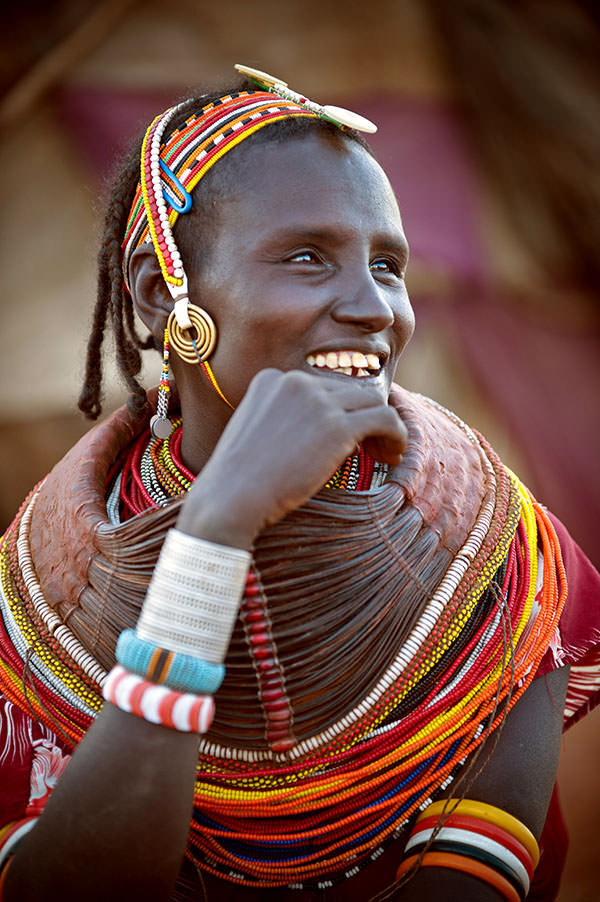
Halhalo Martiyo’s Story
Good Barmin is the home village of Halhalo, an exemplary role model. Her REAP business group was able to provide the funds to pay for medical care for her brother’s child, who was seriously ill. When Kura and I made our first presentations about REAP to women in the Korr region, Halhalo stood skeptically at the back of the crowd. She is a tall woman who is hard to miss with her strong, dark features, and I could not take my eyes off her. I knew that if we could win over Halhalo, then we would have an important ally.
“Halhalo and I have seen each other on numerous occasions since that time, and despite our many differences, we share a bond. It is apparent as we pull up to the village. I step out of the vehicle and am bowled over by Halhalo as she presses her cheek against mine. She looks thinner than last time I saw her, but her gaze is strong and fierce. She welcomes us to her hut and sets about making us all feel comfortable. She pulls out her husband’s shortwave radio and tunes it to Rendille radio, a weekly broadcast from Nairobi. As I sit with Halhalo, holding her hand, I was caught in a moment of hope that wishes for a world that will bring equality and opportunity for people like Halhalo.” (Kathleen Colson, BOMA Nomad blog)
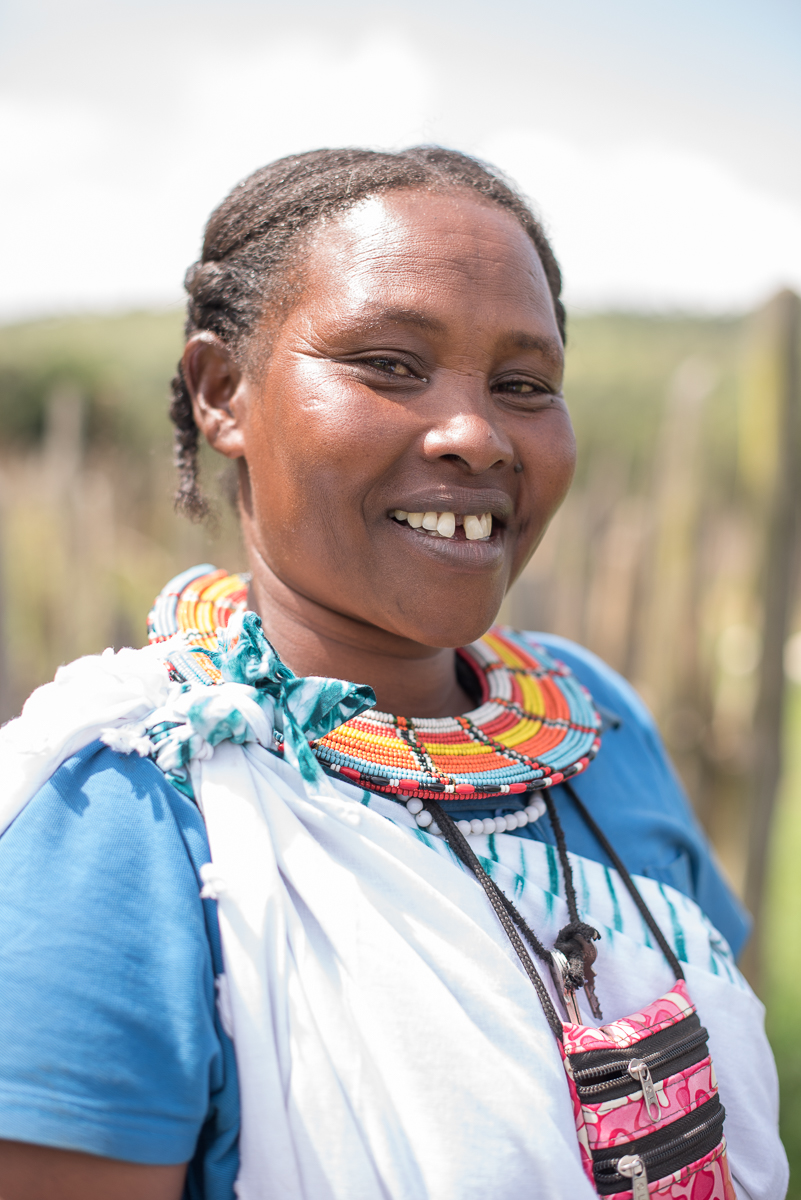
Ntiyarin Lelenguiya's Story
Ntiyarin is part of the Nang’ida Business Group in Ngari Village. She and her husband Michael have six children and one grandchild. She has been a BOMA participant since July 2017, and was enrolled as part of our pilot with the Government of Kenya’s Programme for Rural Outreach of Financial Innovations and Technologies (PROFIT). Ntiyarin and her partners run a livestock business, and she has noticed many changes in her life since she enrolled in BOMA.
“We have gained much knowledge from our Mentor. We have learned about water hygiene, business transactions, how to make a profit. I have met people that I never thought I would talk to. One of the biggest changes is what my children eat. Now they eat well. I learned about balanced eating from our Mentor.”
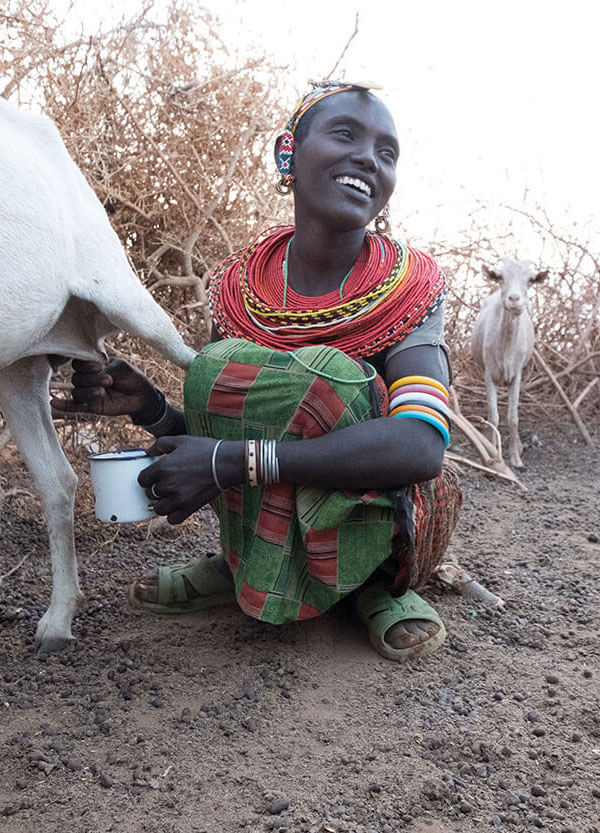
Algoya Basele’s Story
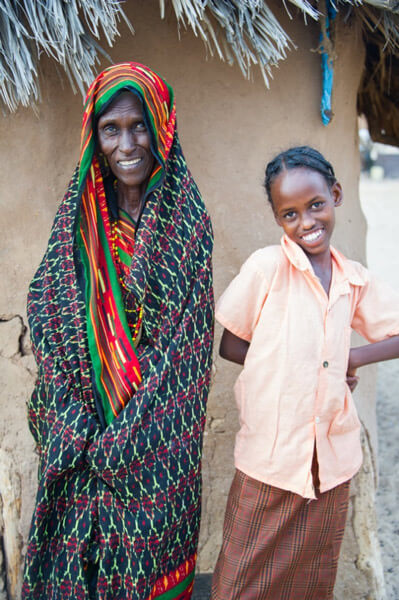
Mekona Galgallo Arbare’s Story
For the first time in her 54 years, Mekona enjoys her life. Mekona is one of 903 participants who exited BOMA’s REAP program in October 2015. For the past two years, Mekona and her business partners have run a small duka selling staple goods such as flour and sugar – goods she never used to be able to afford. “When I used to beg for credit, no one respected me,” says Mekona, “Now, I am respected.”
With three children to support, and no other source of income save a few goats, she used to struggle paying school fees and feeding her family. “Since BOMA, my livelihood has changed. Before I was in BOMA, I would go to bed hungry with my kids,” Mekona says, “sometimes for two to three days.” Now, she does not worry about where her next meal will come from and her children are no longer chased from school. Her youngest daughter, Gano, even dreams of becoming a teacher. “I will never leave my business; this has changed my life. I was very happy with BOMA. Before, I didn’t know what profit was, what income was, even what business was. I am now very comfortable.”
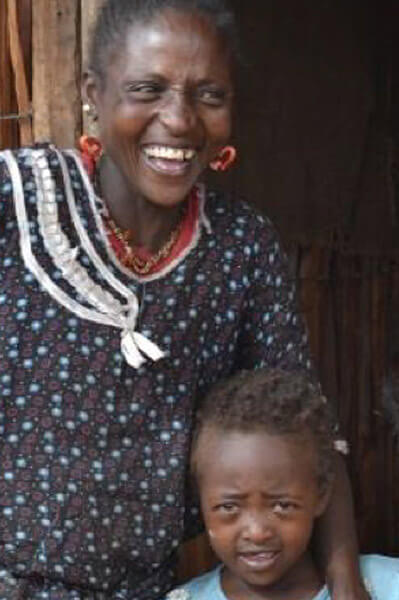
Alice Learoma’s Story
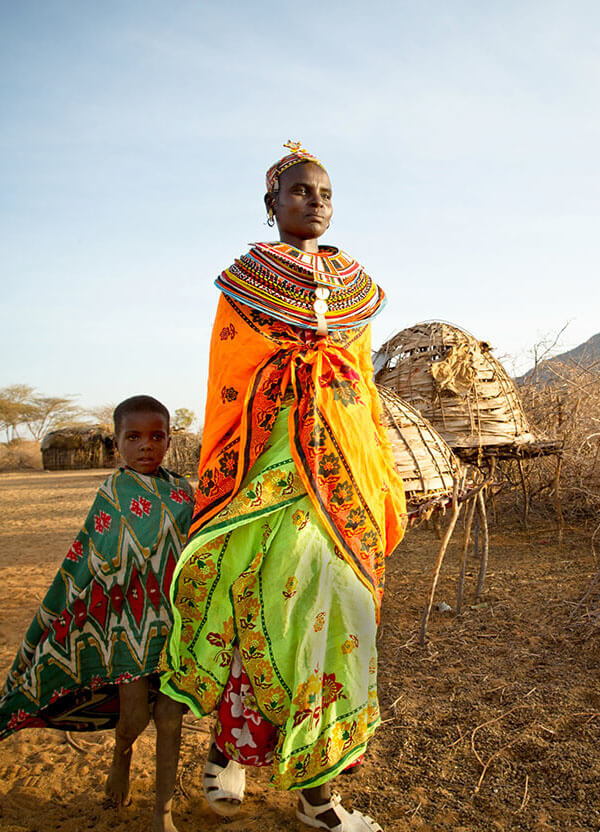
Malawan Lejalle’s Story
Malawan and her daughter Lterian in the nomadic village of Ndikir, near the family hut and chicken coop. Malawan leads a three-woman business group that sells food staples, such as beans, tea, and sugar, to local residents.
“My husband does not know if he will find us alive when he comes home,” says Malawan. “But the last time he returned, he found his eight children doing well… and his wife was plump!” Malawan has eight children and it was the savings from her REAP business that paid for the medical procedure she needed after the miscarriage of her ninth child. I love my encounters with Malawan because she does not give me simple platitudes of gratitude. She is passionate. I will never forget the first time I met her when she basically said to me, “Tell me that this program will work, because I have eight children that I have to keep alive and right now I am having a hard time seeing how this program will do this.” Malawan’s accomplishments, and those of her fellow business partners, is a joy shared by all of us at BOMA.” (Kathleen Colson, BOMA Nomad blog post)
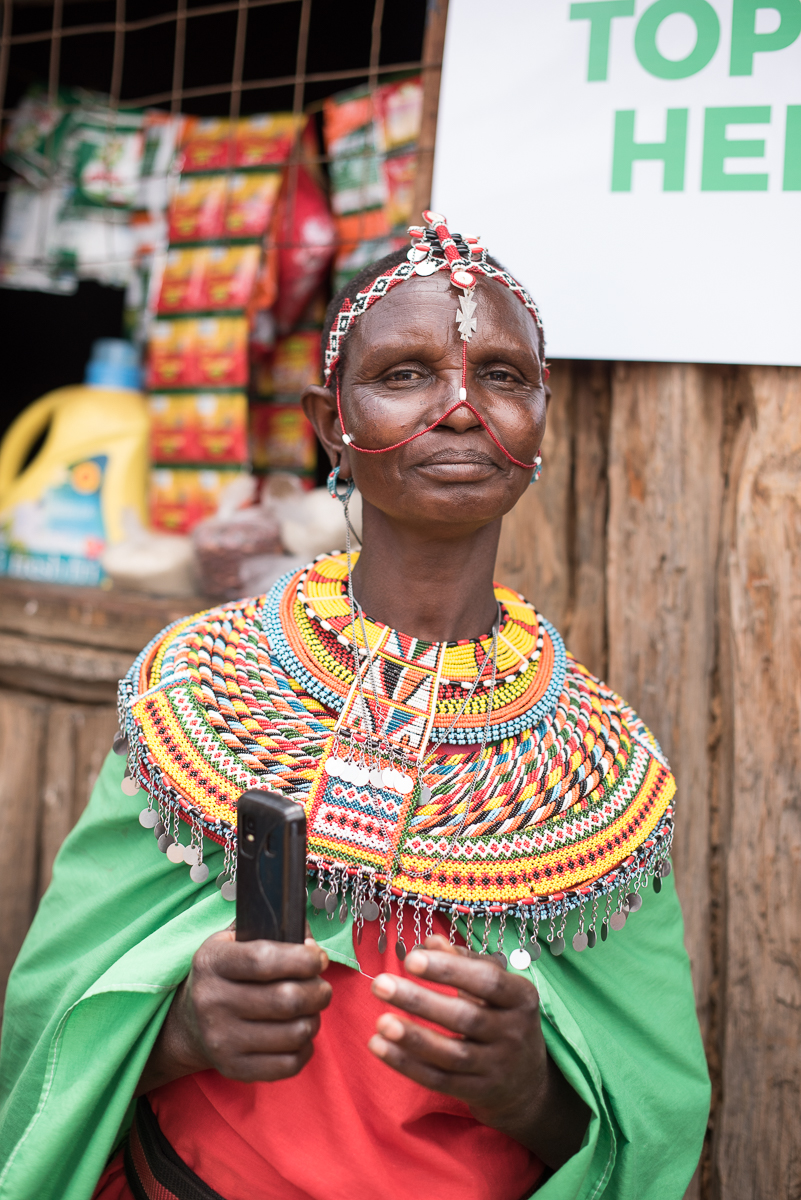
Ntiru Lekatap's Story
Ntiru Lekatap is a member of the Namayana Business Group in Lkuroto, launched in July 2017. The group operates two businesses: their primary business is a duka (kiosk) selling household staples, and their secondary business is a poultry business. The women in the group are very proud of their bargaining skills, which have helped them to make a profit. Ntiru is married to Musa Lekatap. They take care of 4 children and 1 grandchild–their daughter Marko had to leave school when she became pregnant; she gave birth to a baby boy early in 2018. Ntiru used to depend on selling charcoal and picking up whatever labor jobs she could to try to help provide for the family. Sometimes she would have to go with a cup to borrow food from a neighbor, and her children often used to sleep hungry . Now she can afford to feed them better meals. She uses the phone that BOMA provided to members of the group to keep in contact with her partners and handle some financial transactions.
“My children are healthier. My husband used to have to do hard labor, but now I can help and we don’t struggle. I thank BOMA for this program.”
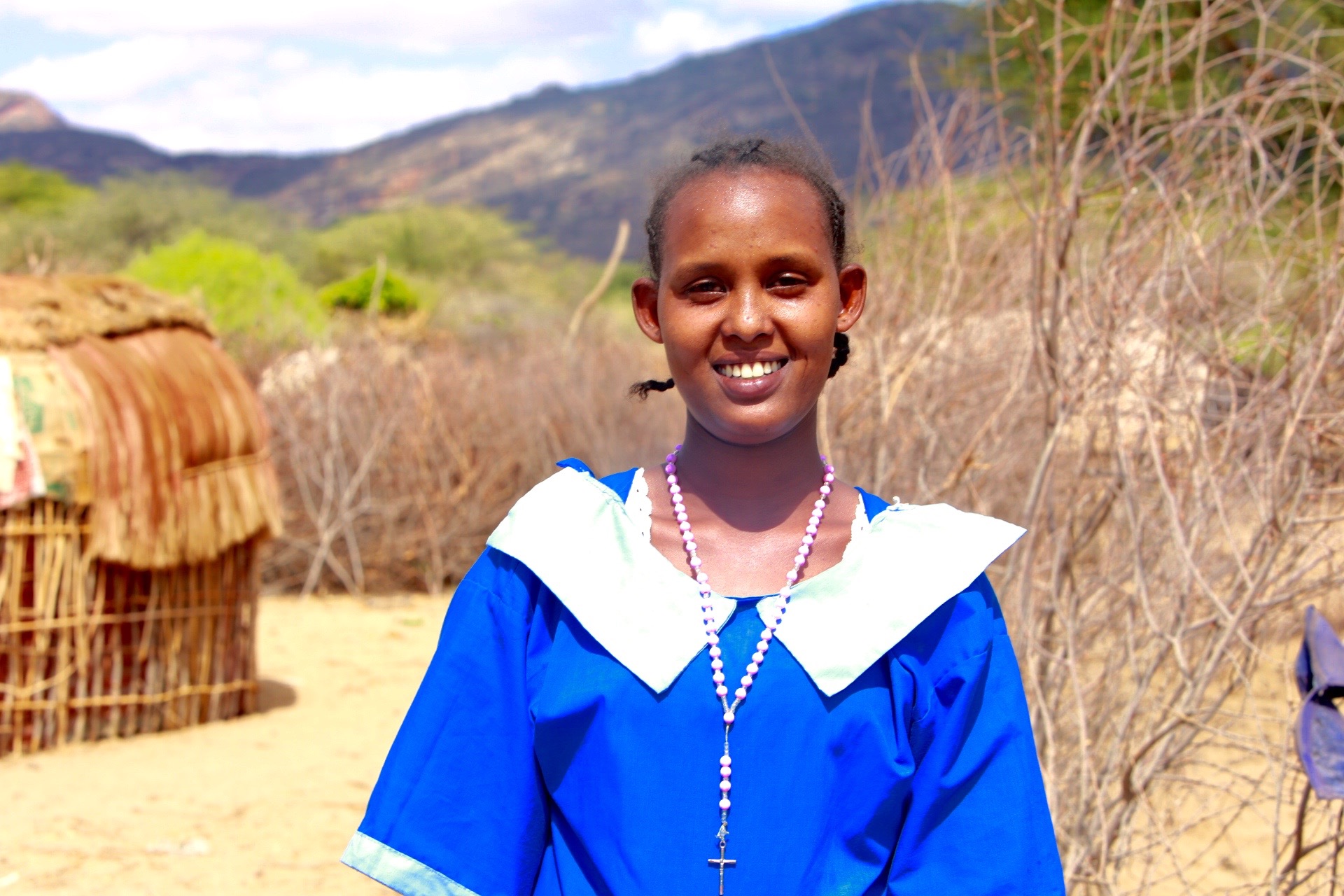
Kento Timado's Story
Kento Timado dreams of becoming a nurse. She wants to help her community and family when she grows up. She is currently in 7th grade at the Ngurunit Primary School in Ngurunit in far northern Kenya.
Kento’s mother enrolled in the BOMA Project in 2016 as part of a cohort funded by a grant from the Bill & Melinda Gates Foundation’s “Putting Women and Girls at the Center of Development” award. She and two other BOMA participants launched a kiosk business selling household staples which is generating income for her family.
Before Kento’s mother started her business, it was hard to consistently pay school fees and purchase school supplies. Today, Kento has everything she needs to succeed at school including a complete uniform, pens, books, and clothes. Eating a healthy meal three times a day is also helping Kento concentrate better at school and stay healthy so she can attend school more consistently. She says “I enjoy school and since my mother enrolled in the BOMA program, I am able to go regularly.”
Kento is working hard to excel at her upcoming exams and qualify for secondary school admissions. After that she plans to pursue a higher education at a nursing school.
A strong advocate for BOMA’s programs, Kento has observed the impact these businesses have had on the women and families in her communitu. She told us that she wants BOMA to continue to support more women like her mother.
“I am proud of my mother and hope that other women in the community will also be given the opportunity to join this program and improve their lives”.
